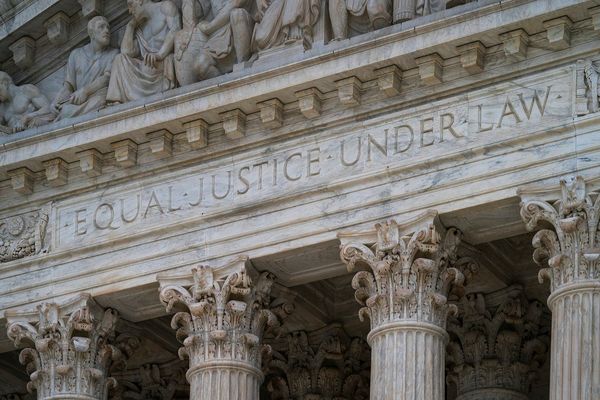
It was with “great joy” that the senior Church of England cleric the Rev Dr Jill Duff, the bishop of Lancaster, announced Philip North’s appointment as the next bishop of Blackburn this week. “Thrilled by this news,” she wrote – the ostensive message that the appointment is good news for women in the church. But this may seem curious to those who know the backstory.
North is one of a number of clergy in the C of E who do not believe that women should be ordained as priests, let alone bishops. Moves to promote him in 2012 and 2017 were quashed after protests by female church members. Those who hold his theological position do not receive bread and wine consecrated by female clergy or by a man or woman ordained by a female bishop. Duff isn’t the only female clergy member to welcome North’s nomination – many no doubt know of his gifts and, despite not fully recognising their orders, how he has been supportive of female clergy in the past.
But the C of E’s commitment to “mutual flourishing”, where both those who accept the ordination of women and those who don’t are supposed to happily coexist, is wreaking damage on the church. This commitment runs so deep that you cannot go forward for ordination, let alone hope to be appointed to the episcopate or to a senior role in the church, if you don’t go along with affirming two contradictory principles: that, one, women are fully accepted as priests; and, two, that it is all right to believe they are not.
But why does this matter, given that we already have nine bishops who don’t fully accept the ministry of women, out of a total of more than 100? Isn’t North just more of the same?
The difference is that North will be the head of the diocese, and will be the first diocesan bishop who does not ordain women to be appointed since women were permitted to be bishops in 2014. As a diocesan, North will oversee both male and female clergy, and there are no opt-outs for those who don’t share his theological views on women’s ministry, as there are for churches that are still able to reject women’s ordination.
It is likely that many female clergy members will struggle with having a bishop who does not ordain women. These women, and the men who do fully accept women’s ordination, tend to keep silent about this and the undermining effect it has on women’s authority in the church. The mantra about mutual flourishing is becoming such an imperative that it seems no one in the church hierarchy wants to hear about how it is not working.
But research by Dr Gabrielle Thomas in 2019 shed light on some of the difficulties women face when they work in churches. “While women are permitted to orders of bishop, priest and deacon, the focus groups [in my research project] have brought to light how painful it can be when women are not recognised as ‘real priests’ and how it can lead to … ‘bullying’,” she writes. “This is powerful testimony, more powerful because it was not asked about explicitly, to the continuing feeling among women that mutual flourishing expects graciousness from women all the time, even when their identity as a priest and thus as a person, is being questioned.”
She describes mutual flourishing as an “open wound” in the church. And sadly, that wound will not heal if we continue to appoint men to senior roles who don’t fully accept women’s ordination.
At a Christmas party this year, I chatted with a charming man who self-identified as “a traditionalist” in the C of E, and who thought that only men should be priests. He could give no theological rationale for his views, only that he was “old-fashioned”. But, being aware of my clerical collar – it was Christmas Eve, and I was about to return to church to lead midnight communion – he said: “Don’t worry – dinosaurs like me will die out soon and everything will be fine.” Under mutual flourishing, that doesn’t seem likely.
It’s now more than 30 years since women were permitted to be priests in the C of E, but the church still relies on its exemptions under the Equality Act 2010 to go on discriminating against women. And this discrimination legitimises sexism, bullying and the silencing of women.
The church has never officially defined what mutual flourishing means. For women, it seems to mean being grateful that we have finally been admitted into the clergy club, even if some members still don’t believe we are fully priests. For those who don’t accept women’s ordination, it now seems to mean that they can aspire to being diocesan bishops overseeing women they don’t fully recognise as priests.
A bishop who does not ordain women (not North) visited me just before Christmas to reassure me of how much he supported my ministry. We had a nice chat over coffee and mince pies, but I told him that the best way he could support me and other female clergy was simply by recognising our orders and seeing us as priests in the same way that he saw himself as a priest. Is that really too much to ask for?
Martine Oborne is a vicar in west London and chair of Women and the Church (Watch), a group that works for equality for women in the Church of England
Do you have an opinion on the issues raised in this article? If you would like to submit a response of up to 300 words by email to be considered for publication in our letters section, please click here.







